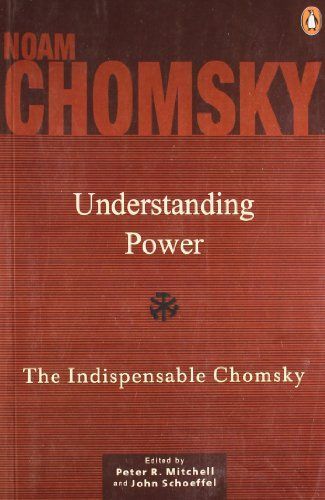
Understanding Power
In a series of enlightening and wide-ranging discussions, published here for the first time, the author radically reinterprets the events of the past three decades, covering topics from foreign policy during the Viet-nam war to the decline of the welfare under the Clinton administration. Characterized by Chomsky's accessible and informative style, this is the ideal book for those new to his work as well as those who have been listening for years.
Reviews
Fraser Simons@frasersimons
Nikolay Bachiyski@nb
Niklas Westren-Doll@nikkewd
Witek Bobrowski@witek
Daniel Figueiredo@obio
Jens Madsen@ingemann
Stella Tran@lilestrellita
Fan @frankbaozhu
Matthew Swain@mswain
Phil Sheard@philsheard
Joshua Line@fictionjunky
Anna Talbot@sontagspdf
Pete Petrash@pete